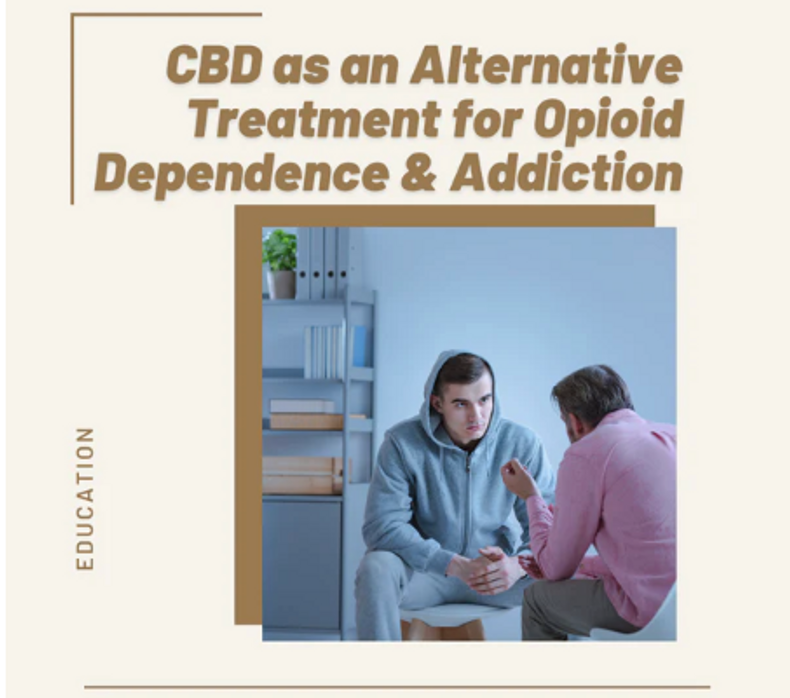
CBD as a Treatment for Opioid Dependence & Addiction
Opioids are widely used in healthcare and are commonly prescribed to patients. However, this has led to an opioid crisis across the U.S. Many traditional treatments such as counseling, medication management, and lifestyle modifications may be effective. But, they often come with their own set of risks.
Recently, there is evidence that plant-based medicines such as cannabidiol (CBD) could offer an alternative to traditional treatments in the fight against opioid dependence and addiction.
The Endocannabinoid Systems Role in Addiction Treatment
The endocannabinoid system (ECS) plays a key role in regulating physiological processes, including pain perception, mood regulation, and appetite. The ECS is composed of cannabinoid receptors found throughout the body which interact with cannabinoids. These cannabinoids are either found naturally within the body or from external sources like cannabis plants. CBD is a non-psychoactive cannabinoid which has shown promise in managing symptoms related to opioid use disorder by modulating the ECS.
In one study conducted on rodents with induced heroin addiction, it was found that CBD reduced heroin cravings and anxiety associated with abstinence from heroin use. A similar study also revealed that CBD reversed behavioral modifications caused by long-term opiate exposure while also decreasing anxiety levels compared to untreated rats. These findings suggest that CBD may be able to help reduce relapse rates among opioid users.
What's the Proof?
In addition to clinical trials conducted on animals, there have been several studies conducted on humans to examine the potential efficacy of CBD for treating opioid addiction and withdrawal symptoms. One study published in 2019 looked at 57 participants who suffered from moderate to severe opioid dependence and had previously failed other forms of treatment such as methadone maintenance therapy or buprenorphine/naloxone therapy. Reductions in withdrawal symptoms and cravings for opioids among those participants who were treated with both Cannabidiol (CBD) and Nabilone (a synthetic cannabinoid). Furthermore, there were no serious adverse events reported during this trial indicating that further research into using cannabinoids for opioid dependence treatment may be warranted.
CBD Shows Great Promise as an Alternative to Opioids
CBD has shown promise as an alternative treatment option for individuals suffering from opioid dependence or addiction when other traditional methods have failed or cannot be safely administered due to certain contraindications or side effects. Further research is needed to assess the long-term safety profile of using cannabinoids for treating substance use disorders. But, current evidence suggests that it may be beneficial in reducing relapse rates among those seeking recovery from opioids or other drugs.
With the growing public health crisis surrounding opioids. CBD is certainly worth looking into further as a possible solution.

